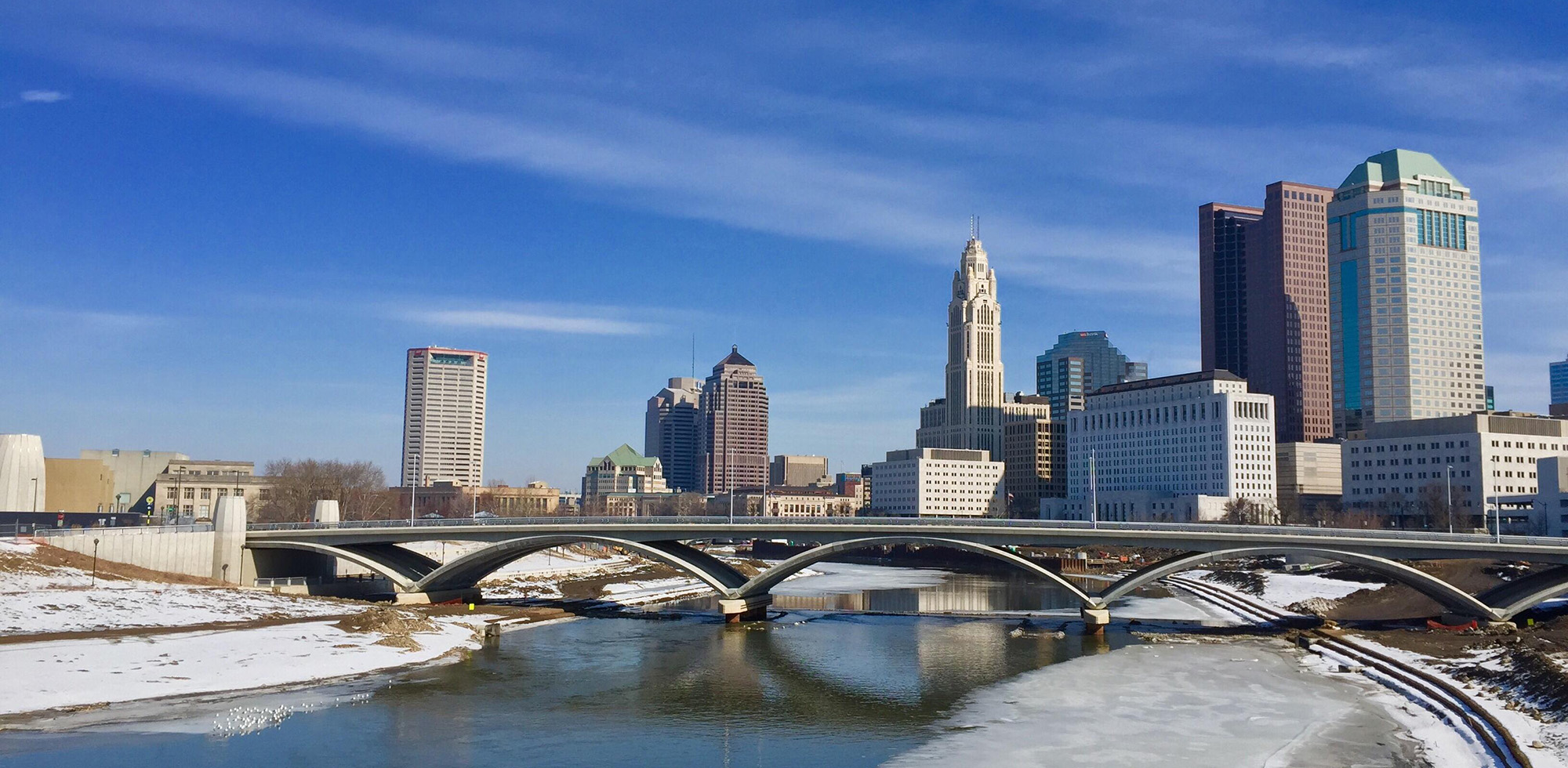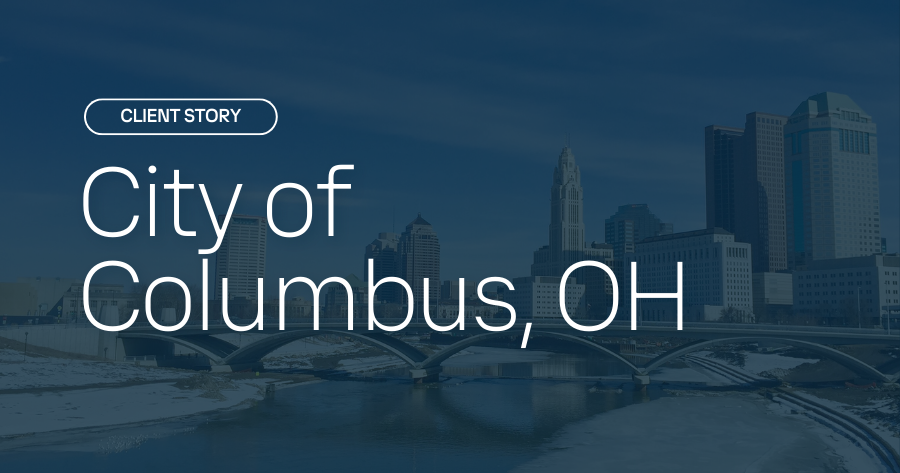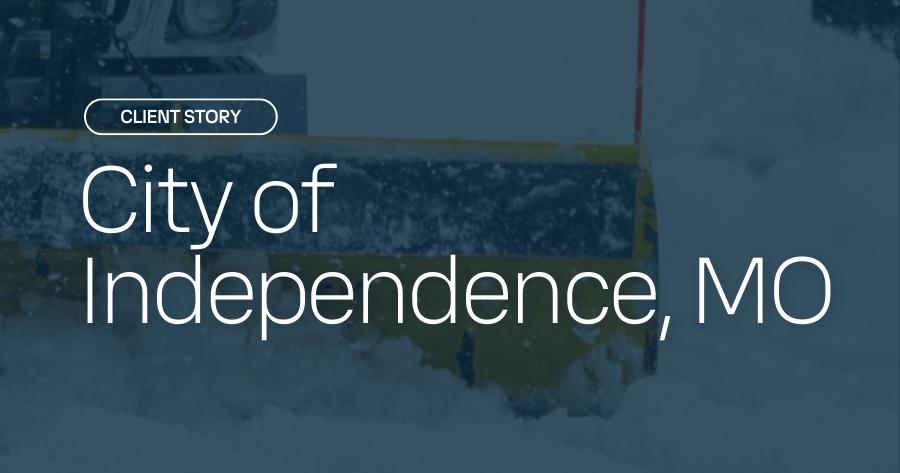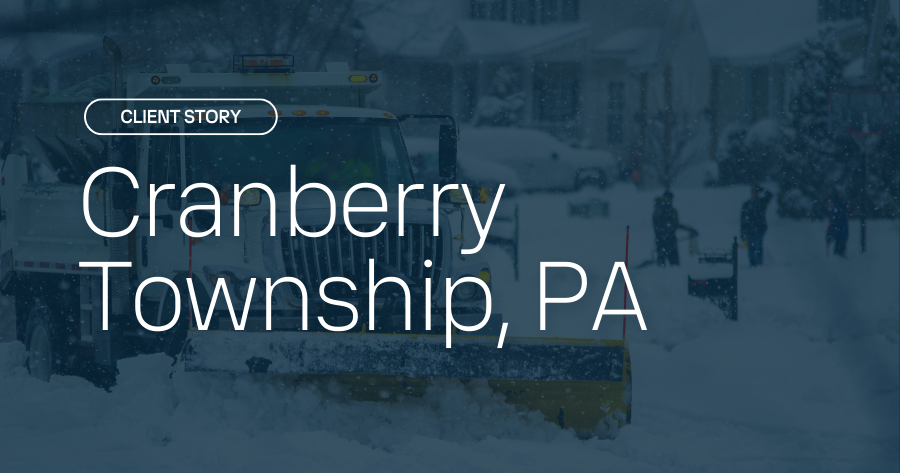“Is this the right investment for our program,” the team pondered...
Understanding the need for additional information, Columbus was unsure they would get the data necessary from Xweather Horizon. They needed to accurately predict road temperatures and conditions, crucial for deciding between spreaders or plows and the right materials to use. After the research initiative with Xweather Horizon, they were convinced that it delivered the data required to increase their operational efficiency during the winter season.
Last year, the City of Columbus, Ohio, launched a pilot project with Vaisala Xweather to enhance its snow and ice control practices using local road weather data from Xweather Horizon. In Spring 2023, the city installed 20 Xcast sensors across its road network. After testing the sensors and evaluating the project results, Columbus decided to continue with the Xweather Horizon subscription to optimize their winter maintenance planning; the pilot outcomes exceeded expectations.
Snow and ice control for almost 5,000 lane miles
Columbus is responsible for snow and ice control on more than 4,700 lane miles of city roadways, with a service area of over 226 square miles.
The storms in Columbus tend to come with different types of precipitation in different parts of the city, which means that the maintenance response must be tailored to different locations. This calls for accurate weather data to ensure a consistently good level of service and continuous safety for road users, without overwhelming the staff.
“Applying for the Xweather Horizon research initiative was an easy decision for us as it provided an opportunity to "real world" test this new winter road maintenance solution to see how we might best use it.”
–Scott Tourville, Administrator, Columbus Division of Infrastructure Management
Maximizing the benefits of IoT road weather sensors
Low-cost yet reliable IoT sensors and subscription services have made it easier to access observation and forecast data for road networks. For the Columbus pilot project, Vaisala’s TempCast and GroundCast sensors were combined with Xweather Horizon to provide hyper-local forecasts and insight into current conditions on the city’s roadways.
Columbus designed the network of 20 sensors together with the Xweather Horizon product team, choosing locations around the city that would maximize the insight they gain from the data. For the GroundCast sensors that were embedded in the pavement surface, a roadway not set to be resurfaced soon was selected. Some of the TempCast sensors were co-located with GroundCast sensors to help Xweather Horizon ensure the measurements were equally accurate.
Results and future outlook
The City of Columbus' goal for the pilot was to explore how it could use the real-time and forecast data operationally to address winter maintenance challenges. Vaisala Xweather’s role was to analyze the road data on the Columbus network to determine the optimal distance between sensors based on differences in sensor measurements across the network.
1. Temperature variability across the network
Using the sensor data, it is easy to identify the thermal relationship between different locations across the city. This allows Columbus to identify which roads are more likely to reach freezing temperatures and helps them target the right areas with winter maintenance.
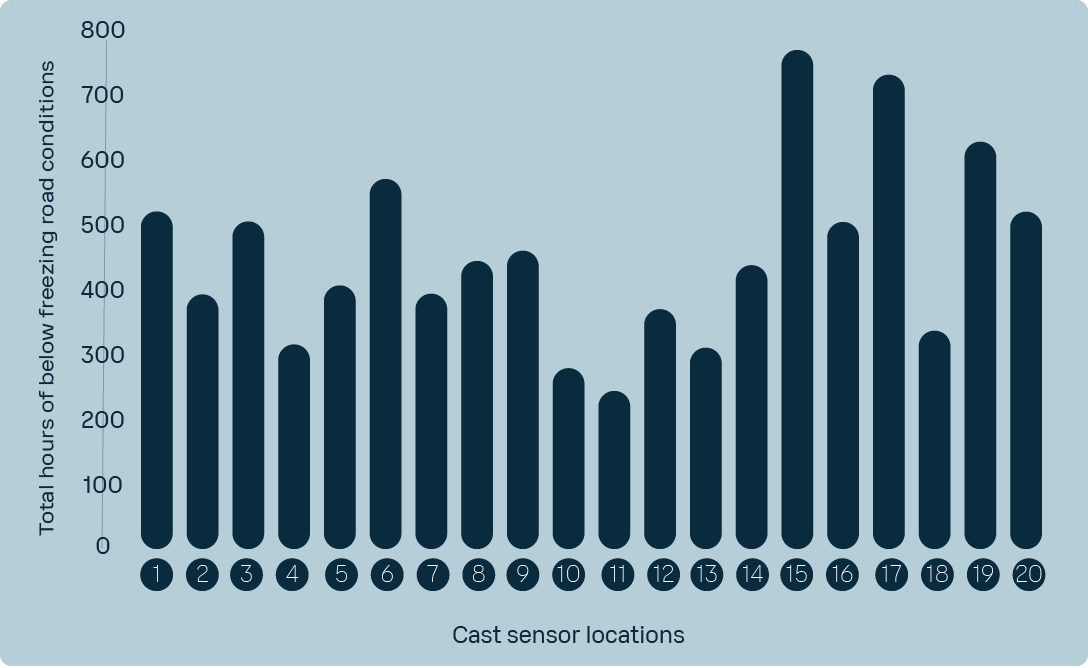
The total number of hours of observed below freezing road temperature conditions at all the Cast sensors in the Columbus network, during the 6 months from October 1st, 2023 to April 1st, 2024.
Columbus uses both observation data and observation-enhanced forecasts. Thanks to forecasts, they can now plan ahead more confidently , determining how cold road temperatures would get and how severe the winter events would be.
Conditions across the network can vary greatly from day to day, even from minute to minute. On some days, all locations across the roadway network remain above freezing, while the next day sees locations reach freezing conditions, while other areas of the network remain above freezing (see examples in the figure below).
The ability to keep track of such evolving conditions and variability across the network, in addition to the information from the latest observation-enhanced forecasts, helps Columbus to make data-informed decisions on critical aspects of winter maintenance.
Snowy road forecasts help the city determine if it needs plows on standby
Road temperature forecasts and data help the city decide which treatment material to use
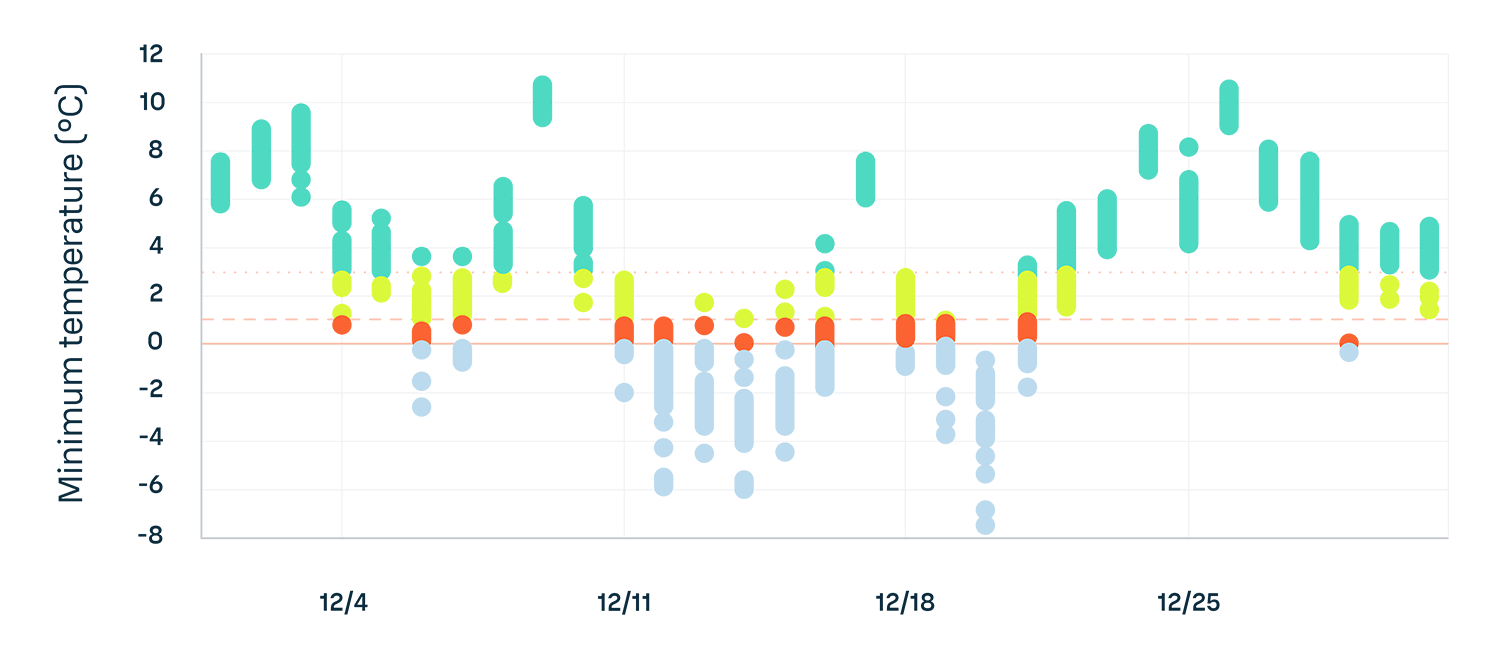
The observed coldest road temperatures at each Cast sensor in the Columbus network (each circle), on each day (horizontal axis) during December 2023. Freezing temperature is highlighted by the solid horizontal line, and near-freezing temperatures are shown with the dotted and dashed horizontal lines.
2. Salt sensing
Columbus uses the Vaisala GroundCast sensor to detect the amount of salt on the roads. The availability of frequently updated observations allows precise tracking of how much salt was applied and how fast it is being removed from roads. When chasing the tail, this helps to estimate if and when they need to re-treat roadways.
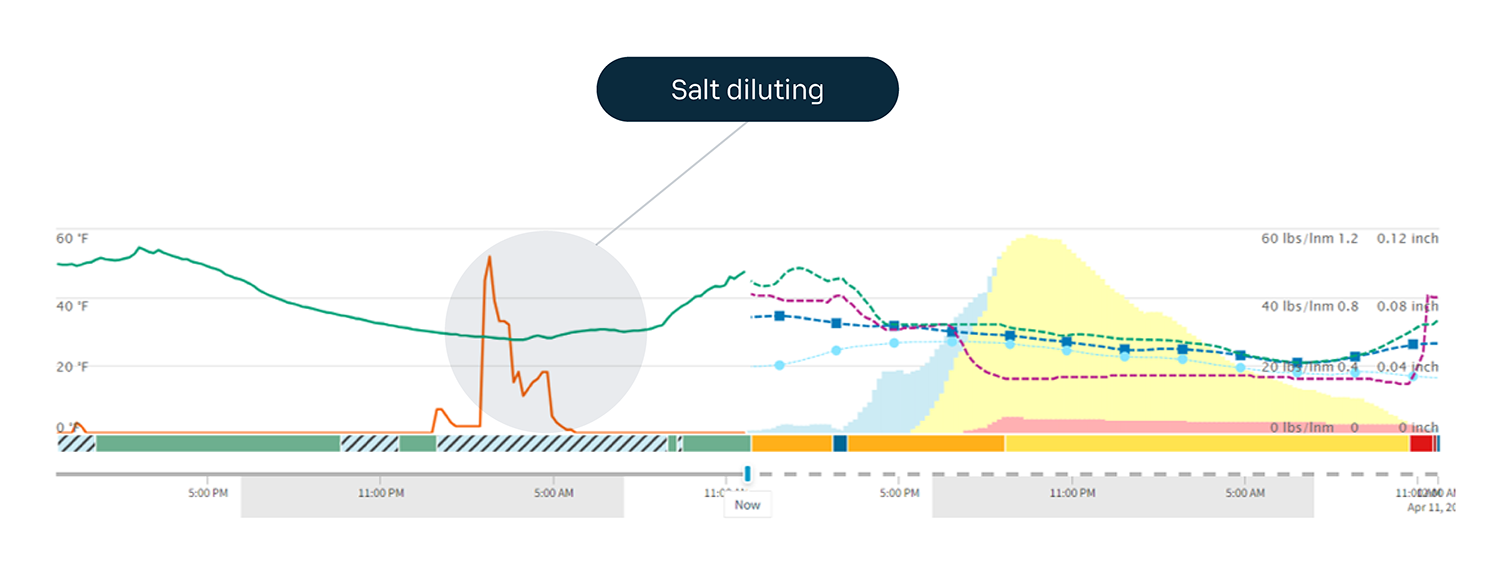
Xweather Horizon also allows the city to access historical data, so they can review which roads were salted, when, and how much. This information can be used for improving road safety or reporting on salt use in different parts of the city.
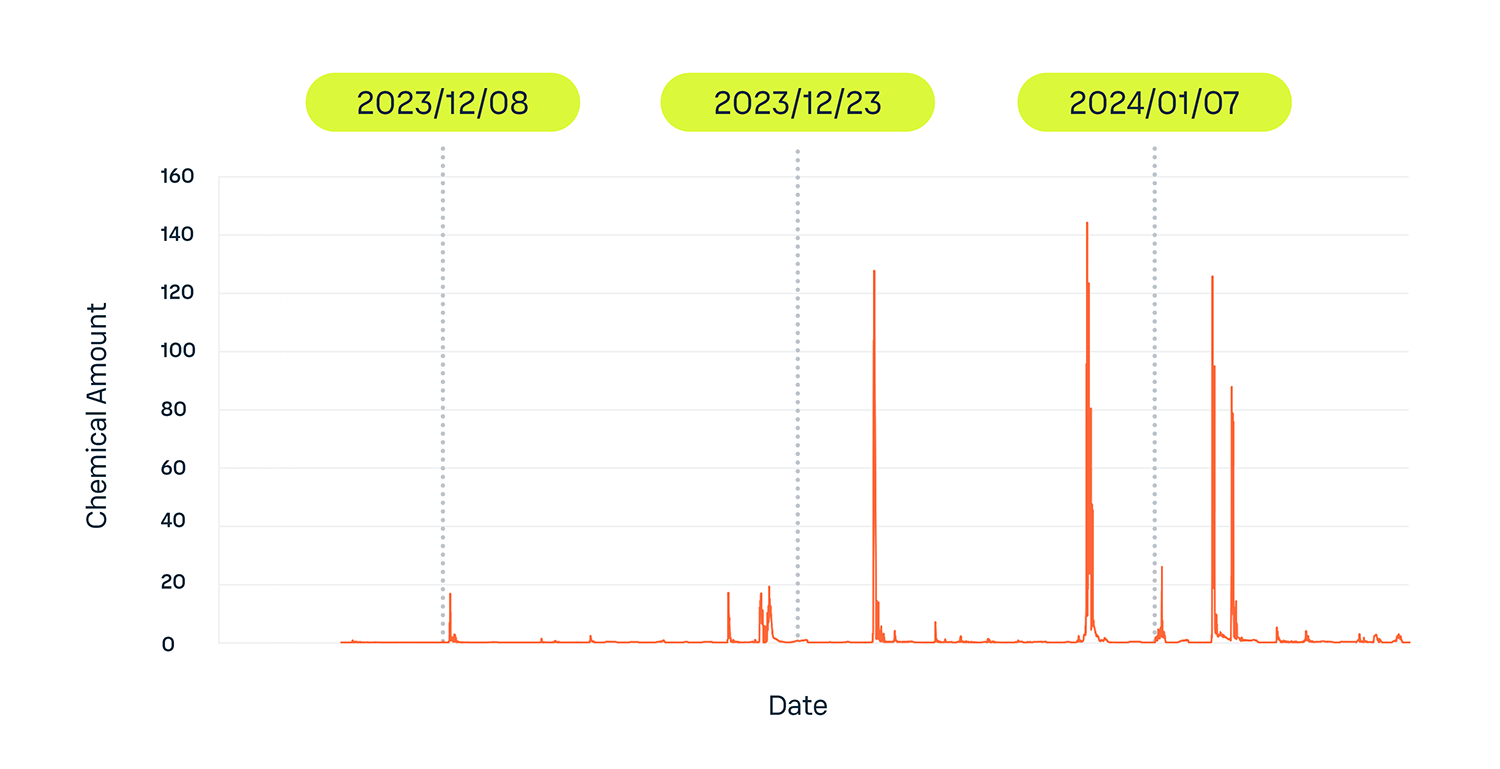
3. Insight on dry and wet pavement areas
The data collected by the Xcast sensors showed variability in dry/not dry across the roadway network. Columbus can use this information to understand where roads may remain wet for longer, posing increased freezing risks with colder temperatures. This enables the city to prioritize sections of the roadway network that require urgent treatment based on the data.
4. Targeted actions when and where needed
Xweather Horizon uses sensor data to train its road weather model and produce enhanced, highly localized forecasts. In the graph below, you can see how the observations from the Xcast sensors help improve the accuracy of the road temperature forecasts, particularly in the first hour by up to 70%.
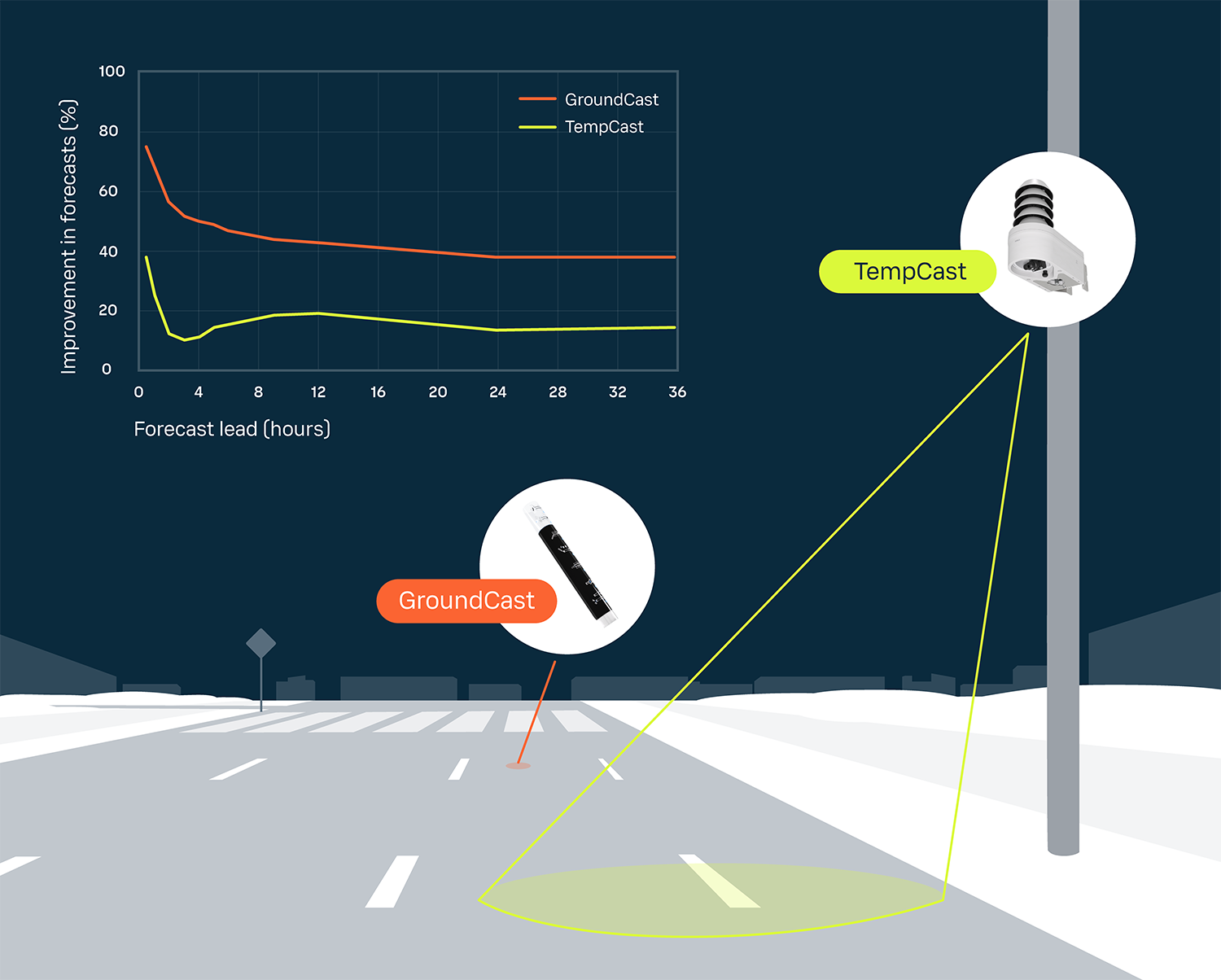
The pilot project succeeded in providing the City of Columbus with more accurate and localized forecasts ahead of and during winter weather events. This allowed them to plan and run their winter maintenance operations more efficiently. They have decided to continue with the program for future winter seasons.
Want to replicate these benefits in your own city? Contact us to find out how Xweather Horizon can help you improve efficiency and safety.
